International Community Development Profile: Tenida Duma Family in Tanzania
In this series, families in the Reaching Children’s Potential (RCP) Demonstration Program in Tanzania explain how their participation improves their lives. Global Volunteers’ RCP Program engages short-term volunteers to help parents deliver essential services improving health, eradicating hunger, and enhancing cognition – with the goal of eliminating child stunting in the Ukwega Ward and throughout Tanzania. Through RCP, families obtain the nutrition, health care, knowledge, technology, and encouragement needed to combat stunting, and to ensure their children can realize their full potential. The RCP Program is a child-focused, parent-driven, family-centered, and community-led comprehensive effort. It begins with pregnancy, and continues through the 18th birthday, with a focus on the first 1,000 days of life. Read Tenida Duma’s interview about the RCP Program here.
Tenida, can you tell us about how you earn a living, what a normal day is like for you, and where you and your husband are from?
My husband and I farm for a living and we also keep chickens and a cow. We farm beans, corn, bananas, avocados, and potatoes. I usually wake up at 5:00 or 6:00 in the morning and I go to church for morning prayer. After that, I do some domestic activities. Then I go to the farm. That’s where I spend most of my time. When I get time to relax, I like reading my Bible and spending time with my children teaching them or playing with them. I get water from the community water tap which is five minutes from here. When water is not available at the community water tank, we get it from the valley, which is also not very far from here. My husband and I were both born and raised here in Lulindi. Our education level is standard seven. Lulindi has fertile land to grow many crops and there are also a lot of natural foods. There is availability of social services like water and many shops to buy domestic necessities around.
What can you tell me about your children, Tenida? How did you choose their names?
My children like to play with their friends and they like making toys, especially cars or balls. That’s mostly what my two boys love to do. Happy likes to read and draw most of the time and she sometimes helps me with domestic activities like fetching water or doing some cleaning around the house. My little one, Scola, usually follows her brothers. She also likes to play.
We named our daughter “Happy” because she was the first one and we were so happy that she was born. Martin and Scola were both named by my husband and I’m not sure what he really considered. And I chose Elisha’s name from the Holy Bible as he was the Lord God’s prophet. I liked the named and gave it to my son.
My children are all doing well, but I have noticed the difference with my little one, Scola, because she understands things very quickly, which is different from my older ones when they were at her age. I think it’s due to the program because through workshops and visits with caregivers, I have learned to do things very differently from how I used to. But all of my children are now doing well because I play a good role as a mother to make sure all their needs are met. I want my children to be successful their entire life. I want them to be educated and have better jobs in the future. My husband and I always think of ways to make them enjoy this life and make their future brighter.
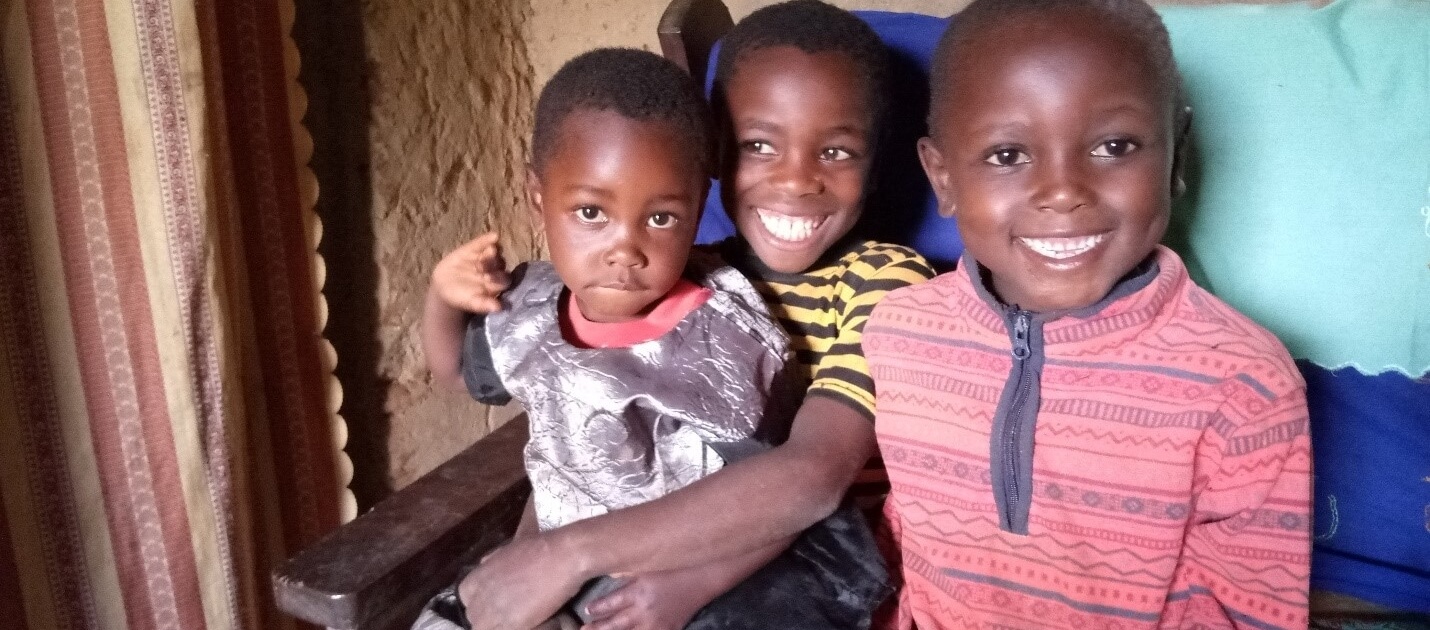
“My children are all doing well, but I have noticed the difference with my little one, Scola, because she understands things very quickly, which is different from my older ones when they were at her age. I think it’s due to the program because through workshops and visits with caregivers, I have learned to do things very differently from how I used to.”
– Tenida Duma, RCP mom
When you learned about the hand-washing stations, what did you decide to do at home? What did you do to convince your family to practice good hygiene?
After I attended the workshop on handwashing, I shared the information I learned with my husband and my children. I taught my husband all about it and he was very receptive. He also helped to instill this practice in our children. At first, my children forgot to use the hand-washing station, but I kept insisting with them and now they are used to it. Even if I don’t remind them, they just do it on their own. It’s a good practice and the hand-washing station is the easiest technology for washing our hands. We used to get stomach fever sometimes, but nowadays not at all. We are all very healthy.
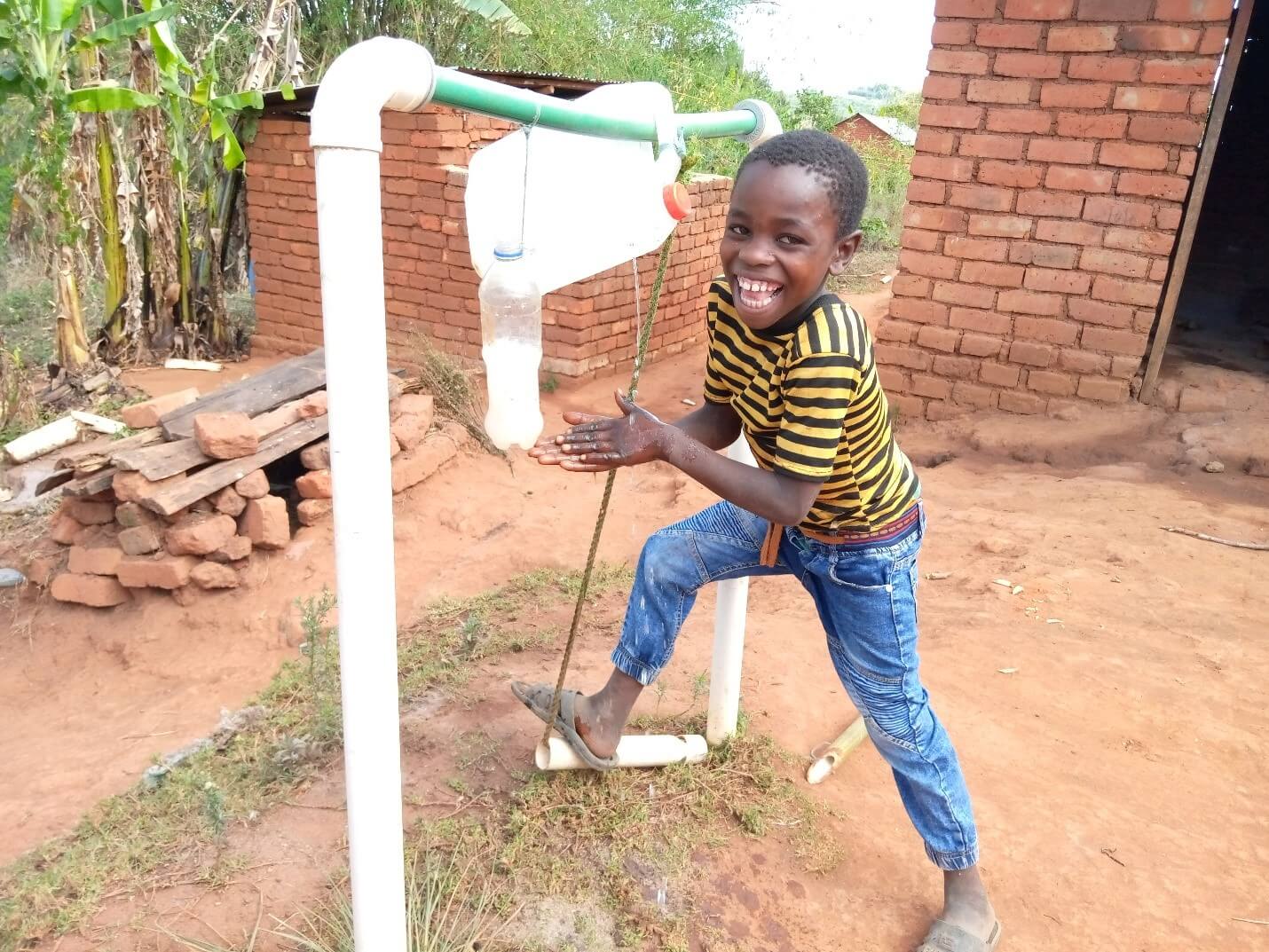
Have the Rise Against Hunger meals been important for your family’s nutrition?
The Rise Against Hunger meals have been very helpful to me and my children. When I was still breastfeeding, I was always producing enough breast milk and the food kept me stronger. My two youngest children and I eat the meals at home and my two older ones eat them twice a day at school, so we all eat the meals every day. My two children who are in school have become very active and my little ones have become very healthy now compared to before, especially Scola, whose understanding is very high for her age. When cooking the meals, I add salt and a little oil. We always eat the Rise Against Hunger meals once or twice per day and other foods that we eat are ugali, rice, beans, sardines, fish, meat, potatoes, cooked bananas, vegetables, and fruits almost every day.
What do you think about the EarthBox technology to grow vegetables at home?
I was very happy when I was eligible to get the EarthBoxes. Currently, I am growing cucumbers in my EarthBox and they are still at the earliest stage. I water them every day to get good results. I know they will be very helpful when they reach harvesting season. I will be able to produce fruits and vegetables right here at home and it will save time for sure.
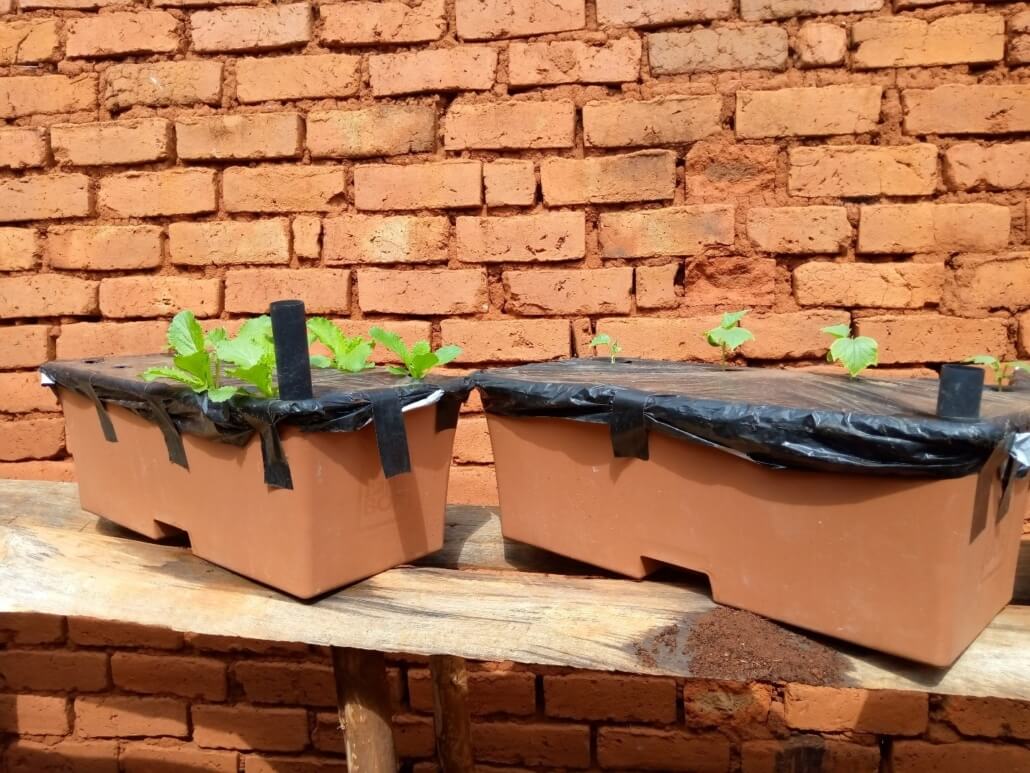
What are the personal changes you’ve made in your life since joining RCP that have resulted in better health for you and your children? What are you doing differently now?
The dental workshop was very helpful. Formerly, I did not see the importance of brushing our teeth twice per day, but after the dental workshop, my eyes were opened and I always brush my teeth twice per day. I also learned from the workshop about the importance of being close to our children and watching their growth. Formerly, I was raising my children without watching their growth, but I changed my mind and I am raising Scola differently from my older children and I have seen a huge difference. I’m always very happy to see my family because we are healthy and happy.
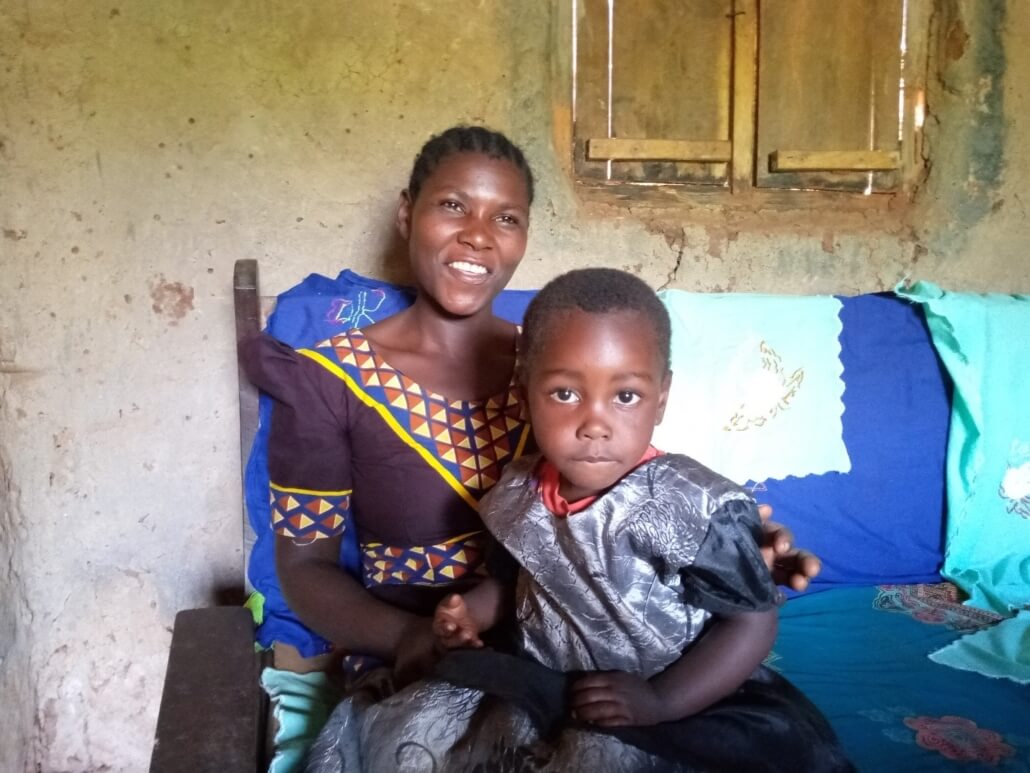
“I also learned from the workshop about the importance of being close to our children and watching their growth. Formerly, I was raising my children without watching their growth, but I changed my mind and I am raising Scola differently from my older children and I have seen a huge difference.”
– Tenida Duma
In what other ways as you educating yourself about improving health, nutrition, and cognition?
I’m ensuring my children have good hygiene and that they get a variety of food every day because it is not healthy to have the same food all the time. Also, my children do not like having the same food all the time and they may not eat properly.
If you have been using the clinic services in Ipalamwa, how are they different from medical services available before the clinic opened?
The services at the Ipalamwa General Clinic are great. I like the way the staff helps the patients with passion and love without caring about their status.
What are your family’s biggest challenges? How do you try to address them?
One of our challenges is depending on one source of income, which is farming because of the nature of the place. That is why I have decided to start pastoralism activities. Currently, I have chickens and one cow and I expect to have pigs very soon and extend my farming.
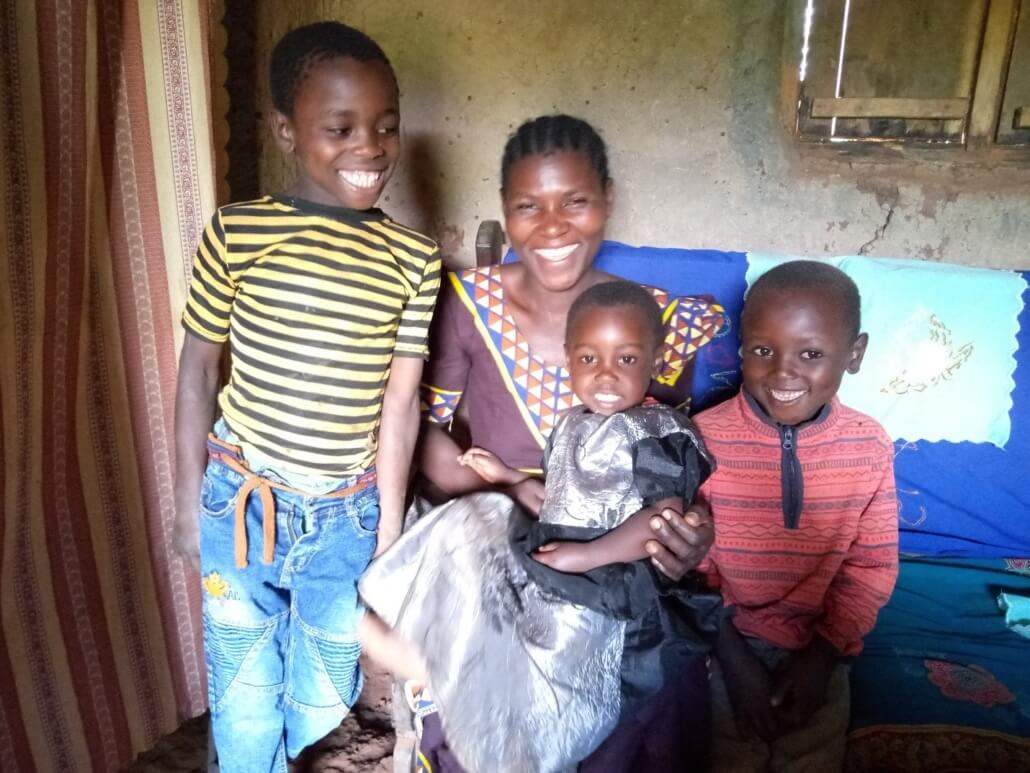
What values from your ancestors and cultures are you trying to maintain?
Helping each other when there are funerals and participating in community activities like celebrations or community work. Also, before a woman gets married, a group of older women who have been married for years, will sit down with the bride and give her instructions on how to handle a marriage and teach her the responsibilities and role that she has to play as a wife and a mother. Just like with the bride, a group of married men will sit down with the groom and instruct him on the roles and responsibilities he has as a husband and father to the family he is going to make.

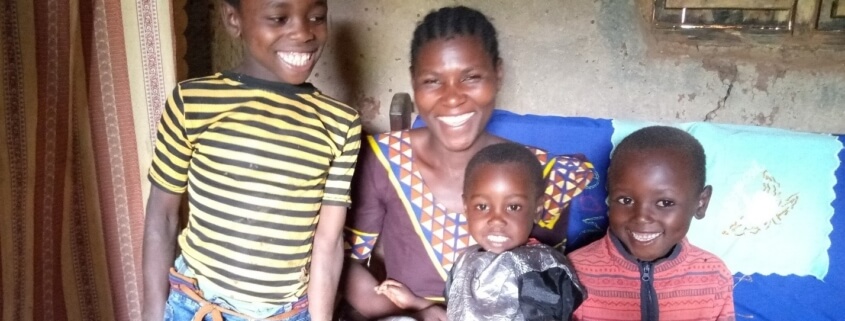
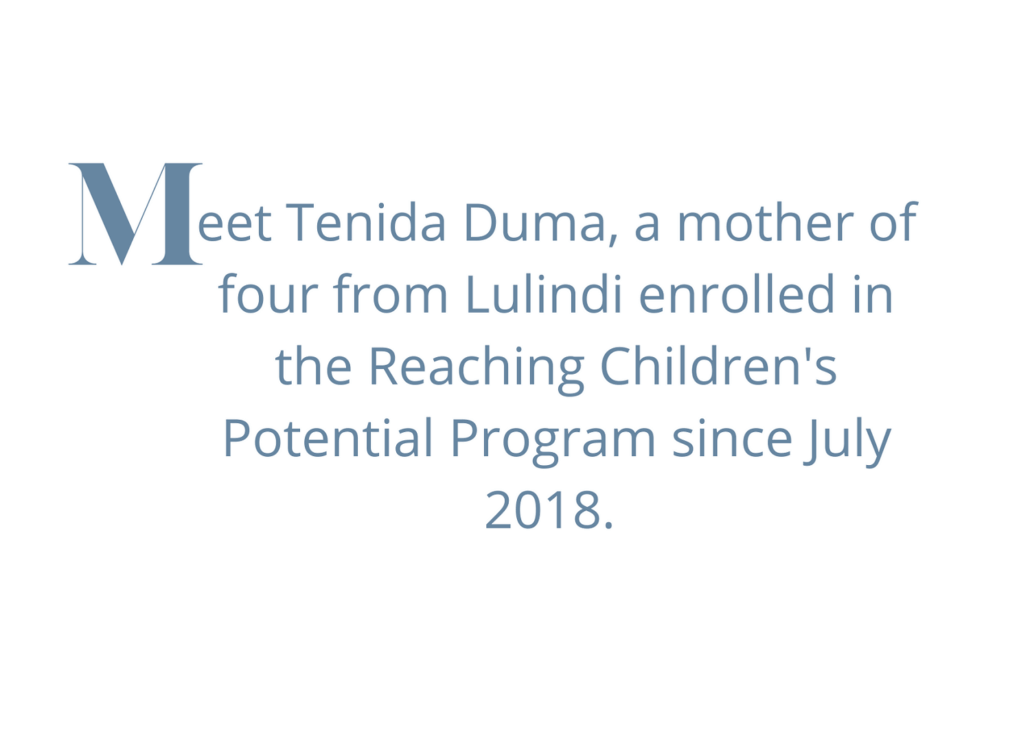
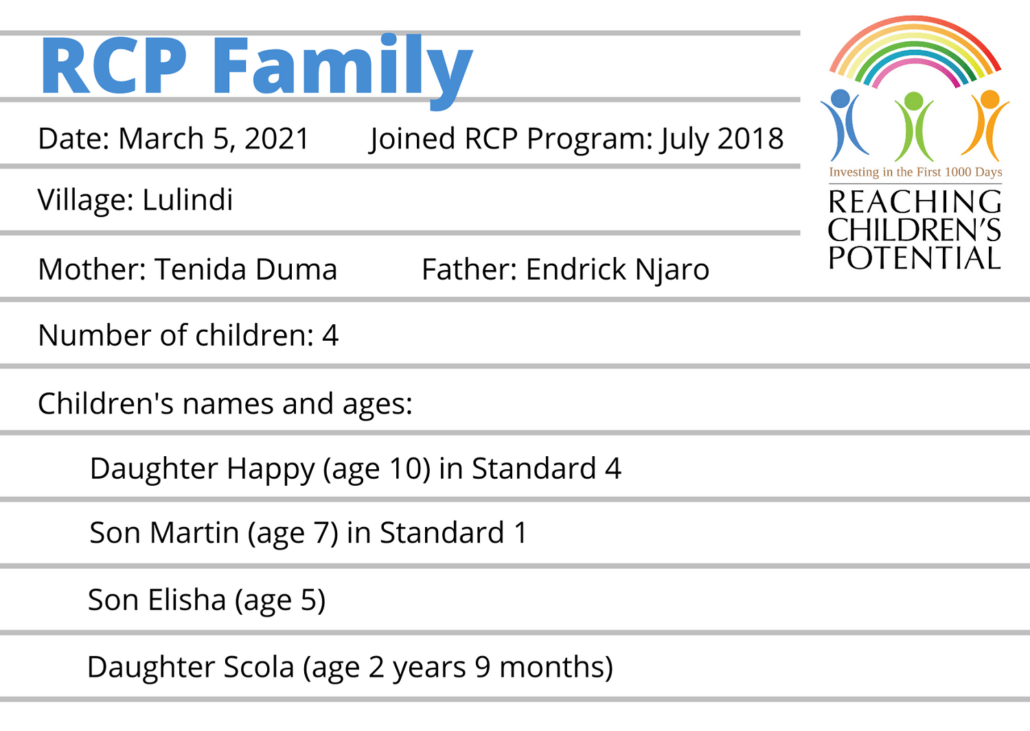


Leave a Reply
Want to join the discussion?Feel free to contribute!